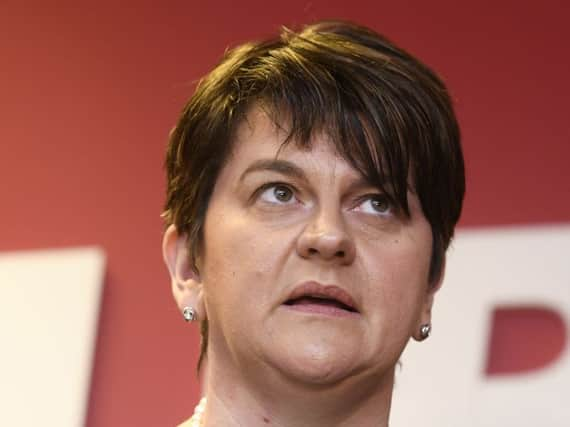Sam McBride: DUP and SF are both taking mammoth strategical risks


The two parties have risen to the top together and – although in the absence of reliable polling they are likely to come back as Stormont’s two dominant powers after any election – there is the chance that if one falls it will drag the other down with it.
There has already been evidence of that in the RHI scandal, a fiasco which is overwhelmingly the responsibility of departments under DUP control. Yet Sinn Fein’s flapping attempts to initially do as little as it could get away with in order to preserve the Executive has also lost that party support, prompting its dramatic walk-out on Monday.
Advertisement
Hide AdAdvertisement
Hide AdIn pulling the plug on Stormont, Sinn Fein suddenly decided that it would use the very existence of devolved government as a bargaining chip. And yet there are intrinsic weaknesses in the republican logic.
The alternative to Stormont is direct rule. Yesterday Máirtín Ó Muilleoir, a potential successor to Martin McGuinness as Sinn Fein’s Stormont leader, made clear that direct rule is unacceptable to Sinn Fein. Yet, if the DUP refuses to give sufficient ground in the coming negotiations it is difficult to see what cards Sinn Fein has to block such an outcome.
While Tony Blair’s Labour government flirted with the idea of ‘joint sovereignty’ of some sort, it is hard to conceive of this more overtly unionist Conservative Government adopting that approach, even if it maintains very warm relations with Dublin – which it will want to keep on side during the Brexit negotiations.
Aside from Tory ideology, there is another reason for the Conservatives not to give Dublin any direct role in Northern Ireland’s affairs.
Advertisement
Hide AdAdvertisement
Hide AdThe DUP’s eight MPs – and the UUP’s two, as well as Lady Hermon – are potential king-makers during major votes in this Parliament. The Tories and the DUP have been assiduously courting each another for around two number years now and while the DUP certainly will not get all that it wants out of the Prime Minister, that relationship could be politically crucial.
By contrast, Sinn Fein’s MPs have no Westminster leverage because they do not take their seats.
On the DUP side, there are obvious – and potentially critical – weaknesses. No party would relish an election on foot of the biggest financial scandal in the history of devolution when that party bears at least some of the blame.
While there is no talk of removing Mrs Foster as leader, rank and file members of the DUP are dismayed at the leadership’s tone-deaf handling of a scandal where early humility would likely have rescued the situation. Some DUP members have told this newspaper that they will not be canvassing in the election, such is their disillusionment.
Advertisement
Hide AdAdvertisement
Hide AdBoth major parties will have been conducting private polling over recent days and be heavily influence by it.
But one factor should concern both the DUP and Sinn Fein. In 2016 people who had never voted before were crucial to the Brexit vote and the election of Donald Trump. Pollsters struggled to predict either.
There is widespread anecdotal evidence that the RHI scandal has infuriated many non-political people in Northern Ireland. With 40% of the electorate not voting in the last election, if even a third of those people voted there is the potential that we are all shocked.